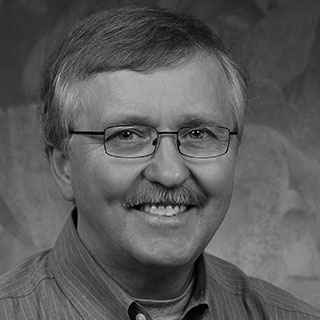
Freedom, Identity and the Good: the Theological Ethics of Christian Community

Christian freedom flourishes within a trinitarian horizon. Trinitarian divine goodness proves to be a fruitful plausibility structure within which to think about human freedom, community and the moral self. Trinitarian goodness-freedom takes us to a higher dimension of the self. It reveals new possibilities for identity, discovery, and personal transformation within divine communion and human community. It is in the life of the God-man, Jesus, that we can visualize this energizing and life-giving dynamic.
In this blog post, we propose a recovery of ethics in partnership with trinitarian relationality as an inspiration for Christian community. Jesus of Nazareth offers an exemplum of redeemed human freedom. The human good can be linked through a transcendent turn to trinitarian goodness. Jesus’ life constitutes reconciliation, rather than enmity between goodness and freedom. In the philosophical turn towards transcendent goodness, Foucault's ontology of liberty is subverted by the ontology of agape love without losing anything. We move from the aesthetic to the ethical and now into the religious plane of existence (Kierkegaard).
How does Jesus’ life interpret freedom uniquely in light of this suggested turn to transcendent goodness? The interpretation starts as trinitarian theonomous goodness-freedom, a God-related freedom, that is qualified by transcendent divine goodness. It begins with the living God of the Christian story, who is constituted by a form of relation, mutuality and reciprocity, in which freedom is given to that which is Other. In this case, it is other Persons within the Trinity. The Christian Trinity is a tri-unity of Persons with a history of self-giving freedom that defines God’s being as agape love. It is the constitutive good, the moral source and inspiration for human, finite goodness.
The position we are taking is clarified by British theologian, Alistair McFadyen, who reflects on the hermeneutic of freedom and self-giving within the Trinity. Human freedom, he claims, is grounded in, and defined by, God’s freedom.
God’s inmost being is constituted by the radical mutuality of the three divine Persons, in which they both give and receive their individuality from one another. In their intersubjectivity, there is the creative intention and recognition of subjectivity, and therefore transcendence in form of the integrity of personal identity, in the giving of space to one another. This giving of space is an interpersonal event, and must not be thought of as analogous to the evacuation of physical space. It is not a form of absence, but a way of being present with others in creative recognition of their autonomy within the relationship. It is a letting- be, rather than a letting-go: a structuring of the relationship so that it includes space and time for personal discreteness and autonomous response. Thus, the trinitarian life involves a circulation of the divine potentialities of being through the processes of self-giving, in the unity of which the three Persons receive their distinct personal identities. (A. McFadyen, 1995, 46-7)
This is the same gift of benevolent divine freedom that is expressed through the presence in the world of God the Son and God the Spirit, the second and third Persons of the Trinity. God is a community of Persons in movement towards and present within creation, stimulating and opening up a future possibilities for robust human freedom. Because God is free, loving and relational, humans should be confident that they are not victims of fate, domination and materialistic determinism. The character of redeemed freedom is creative and dynamic in its existential engagement with human sociality. Human freedom takes its cue from God, and flourishes within God’s freedom. In fact, the dependence of human freedom on God secures its integrity. God creates the larger horizon for freedom, affirms and validates it. Thus, the relationship between divine and human freedom is a profound gift.
God’s gift of freedom also entails God’s willingness to take the consequences of human freedom, even human assertions of autonomy and disbelief in God.
Knowledge of this goodness-freedom is not invented sui generis. It is offered through relationship with God as Trinity. God’s creation opens the latitude that affords space for human response in a non-coercive environment. It even includes the possibilities of human misunderstanding, rejection, disobedience towards and even disbelief in God. McFadyen, (1995, 44) writes: "We find God subjecting Godself, first of all to the limitation of the incarnation in a human person; secondly, allowing Godself to be subject to human freedom—even to the extent of death— to bear the consequences of the human refusal of freedom."
Human freedom is enhanced and empowered when there is a grateful response to the God who built into creation the very possibility and parameters of human freedom. The created, ordered ecology of relations is respectful of both divine sovereignty and a large degree of finite human choice and autonomy. Space is given for growth in individual integrity, uniqueness and particularity. This matches Foucault’s strong emphasis on the creativity in the self, without sacrificing many other positive infrastructural dimensions. At the end of the day, Foucault resists this limited but rich definition of freedom as a gift from God. He wants instead unlimited, unrestricted freedom for the self—radical autonomy—which falls into nihilism and obsession with oneself.
Jesus, on the other hand, is the free and loyal Son of the Father, exemplifying the positive marriage between goodness, freedom and obedience, revealing its existential world impact. The irony of our discovery is that freedom as radical autonomy leads to a loss of self, crisis of identity and alienation from the Other. Jesus is completely free within a communion of love. In the practice of redeemed freedom, the human freedom of Christ vividly discloses God’s creative freedom--an important epiphany or revelation of strong transcendence.
[It is in the] Image of Christ, where freedom is exercised as rooted in the will of the Father and mediated in the power of the Spirit that the true character of the image of God is disclosed to us, both as the divine freedom for grace and as the human freedom of obedience .... Christ is ... both the revelation of the divine freedom of grace and the disclosure of the human freedom of obedience, where obedience to the will of God the father is not the abrogation of human freedom but the form of its exercise. (Christoph Schwöbel, 1995, 80)
For Foucault, obedience to the Christian religion is negative and repressive, but in Jesus, it is never a contest between God the father’s freedom and his own. It entails an intimate cooperation rooted in this loving communion. Jesus reveals that modern forms of freedom can be liberated from the weighty obligation to live self-reflexively out of one’s own power and resources. It also reveals a divine-human relationship rife with grace. This is carried on even in the midst of many attempts to oppress Jesus and repress his voice.
McFadyen illuminates some nuances of the divine-human interface of freedom, revealed through the incarnation.
[By] incarnation in the body of the crucified one implies that God’s freedom does not, after all, entail a transcendent aloofness from the world, but a form of involvement with it in which the divine being and freedom are staked. God subjects Godself to the risks, vulnerabilities and ambiguities of historical existence, including the risk of rejection, suffering and death, as well as of misinterpretation. God’s freedom and sovereignty must be of a radical kind: the freedom to give oneself in relation; to be with and in creation in ways that are costly to God, but which do not abrogate God’s sovereignty, freedom and transcendence. (A. McFadyen, 1995, 42)
In the incarnation, one sees God communicating and relating, not as a tyrannical, coercive, absolute sovereign, but vulnerably in and through the form of human individual, by uniting the divine freedom of self-giving agape love with that of a human being. In the Christ event, one is confronted with a divine power that is highly personal, and which consequently has impact through forms of interpersonal communication and personal presence. This God posture makes creative appeal to human freedom. Divine freedom and will is the proper context of human freedom. It is not a divine monologue of commands, but a dialogue in which humans are intended and respected as subjects with free choice and freedom of speech. Abraham Joshua Heschel often says in his understated way, "God continues to be interested in human beings."
Freedom and the moral self, its content and definition, has been a central concern in my PhD dissertation. The upshot of this dialogue is that not all definitions of freedom are deemed equal. When freedom embraces goodness, it transforms freedom from an end in itself, to freedom as a benevolence toward the Other (agape love). Within the plausibility structure of trinitarian transcendent goodness, love becomes the content of freedom as well as freedom’s trajectory or raison d'être. The exercise of redeemed freedom takes seriously the human and divine Other, especially the weaker, more vulnerable. Schwöbel captures it succinctly.
The true measure of freedom is love as the relationship which makes the flourishing of the other the condition of self-fulfilment. Human freedom becomes the icon of divine freedom where the freedom of divine grace constitutes the grace of human freedom ... That most poignant image of hope, the Kingdom of God, expresses the relation of free divine love and loving human freedom together in depicting the ultimate purpose of God’s action as the perfected community of love with his creation. The fulfilment of God’s reign and the salvation of creation are actualized together in the community of the love of God. (C. Schwöbel, 1995, 80-81)
Dr. Gordon E. Carkner, Meta-Educator with UBC Graduate Students, PhD University of Wales and the Oxford Centre for Mission Studies. Author of The Great Escape from Nihilism; and Mapping the Future.
McFadyen, A.I. (1995). Sins of Praise: the Assault on God’s Freedom. In C. Gunton (Ed.). God & Freedom: Essays in historical and systematic theology (pp. 36-56). Edinburgh: T. & T. Clark.
Schwöbel, C. (1995). Imago Libertatis: Human and Divine Freedom. In C. Gunton (Ed.) God & Freedom: Essays in historical and systematic theology (pp. 57-81). Edinburgh: T. & T. Clark.
 Dr. Gordon E. Carkner, the Director of Graduate & Faculty Campus Ministries, along with his wife Ute love connecting with future global leaders within the graduate student university community. Through hospitality, biblical investigation, prayer and discussions of faith and academic studies, these students are drawn into kingdom concerns and introduced to God's powerful agape love. This is a transformational experience that builds community at the crux of high achievement passion, loneliness and stress. With a team of faculty, the ministry mines the wisdom of the ages, employing excellent Christian scholarship.
Dr. Gordon E. Carkner, the Director of Graduate & Faculty Campus Ministries, along with his wife Ute love connecting with future global leaders within the graduate student university community. Through hospitality, biblical investigation, prayer and discussions of faith and academic studies, these students are drawn into kingdom concerns and introduced to God's powerful agape love. This is a transformational experience that builds community at the crux of high achievement passion, loneliness and stress. With a team of faculty, the ministry mines the wisdom of the ages, employing excellent Christian scholarship.